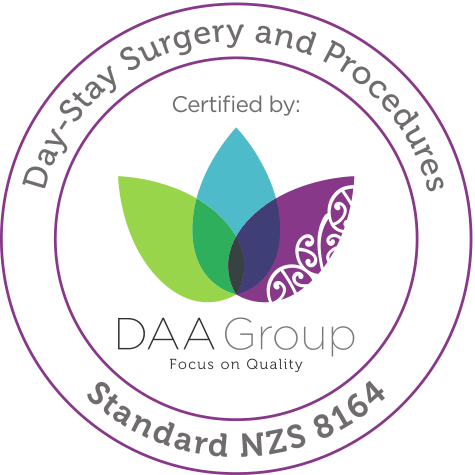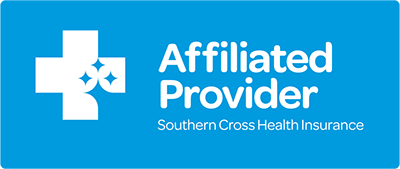Dr Jesslyn PragantaBDS, PGDipClinDent (Oral Surgery), DClinDent (Oral Surgery)

- Dental Implant Placement
- Bone Grafting
- Wisdom Teeth Removal
- Impacted Canines
- Oral Lesions
Procedures
Dental Implants
Dental implants are artificial tooth roots that are surgically positioned into the jawbone beneath your gums. Once in place, they allow your dentist to mount replacement teeth onto them. They are now considered the gold standard for restoring the appearance and function of your smile from missing teeth, as they feel and function like normal teeth.
- Improved appearance: Dental implants look and feel like your natural teeth, providing a more natural appearance and smile.
- Enhanced comfort: Implants become a part of your jawbone, eliminating the discomfort often associated with removable dentures.
- Improved speech: Implants allow you to speak without the worry that teeth might slip.
- Better oral health: Dental implants don’t require reducing other teeth, as a tooth-supported bridge does, leaving your natural adjacent teeth intact and not relying on them to support your missing teeth.
- Adequate bone support: Successful implants are dependent on having enough bone in the jaw to support the implant.
- Healthy gums and good oral hygiene: Patients with gum disease or other oral health issues need to address these concerns first prior to dental implants.
- Good overall health: Certain conditions such as uncontrolled diabetes, immune deficiencies and bone medications such as those used to treat osteoporosis may affect the success of dental implant surgery.
- Consultation and examination: Jesslyn will examine your mouth and jaw and discuss your dental and medical history to determine your eligibility for dental implant surgery. A 3D intraoral scan will be taken (this replaces traditional impression taking) as well as 3D CBCT x-ray to formulate a treatment plan that is customised to your needs.
- Implant placement: The implant is surgically placed into the jawbone under local anaesthesia or IV sedation. If your jaw bone volume is not adequate, then additional bone graft surgery may be required.
- Healing and osseointegration: Over a period of 3-6 months, the implant fuses with the jawbone in a process called osseointegration.
- Final check: Once Jesslyn is satisfied with the bone healing, she will refer you back to your dentist for construction of the implant crown/bridge.
As with any other surgery, some pain and swelling can be expected in the first few days after surgery. A single dental implant placement surgery is considerably less "traumatic" than a tooth extraction and on average patients report returning to work after a couple of days.
- Practice good oral hygiene: Proper brushing and flossing are essential for the success and longevity of your dental implants.
- Avoid harmful habits: Avoid chewing hard objects and smoking. Night guards may be recommended if you have teeth grinding/clenching habit in your sleep.
- Regular dental visits: Regular dental check-ups and hygiene visits are crucial to monitor the condition of your dental implants and ensure they are functioning properly.
The cost of dental implants can vary depending on factors such as the number of implants needed, the complexity of the case, and any additional procedures required. Jesslyn will send you a detailed estimate as part of your treatment plan letter after your consultation appointment. While dental implants may have a higher upfront cost compared to other tooth replacement options, they are considered a long-term investment in your oral health and overall well-being. If your case meets the criteria for ACC funding, the full surgical cost may be covered. You can also speak to our front office to discuss payment options.
Bone Grafting
- Loss of bone due to periodontal disease
- Congenital defects in the jaw
- Bone loss due to tooth extraction, infection or trauma
1. Socket Preservation
2. Sinus Lift
3. Ridge Augmentation aka Guided Bone Regeneration
4. Block Graft
5. Types of Bone Graft Materials:
- Allografts: Bone graft material from a donor other than the patient.
- Autografts: Bone graft material harvested from the patient's own body, typically from the chin or wisdom teeth sites.
- Xenografts: Bone graft material derived from a non-human source, often bovine or porcine.
- Immediate Post-Operative Period: Some swelling, discomfort, and minor bleeding can be expected after the surgery. Pain medication and antibiotics will be prescribed to manage discomfort and prevent infection.
- Healing Process: The bone graft material will gradually fuse with the existing bone in a process called osseointegration. This healing process can take several months, during which patients should follow post-operative care instructions provided by Jesslyn.
- Implant Placement: Once the bone graft has integrated and stabilised, dental implants can be placed in the newly augmented bone.
- Follow all post-operative instructions provided by Jesslyn, including proper oral hygiene practices and dietary restrictions.
- Attend follow-up appointments to monitor the healing process and ensure the success of the bone grafting procedure.
- Avoid smoking, drinking through a straw, or engaging in activities that may disrupt the healing process.
The cost of oral bone graft procedures can vary depending on the type of graft, the extent of the bone loss, and the complexity of the case. Some dental insurance plans may cover a portion of the cost, while others may consider it an elective procedure. It is important to consult with your insurance provider to understand your coverage options. If your case meets the criteria for ACC funding, the full surgical cost may be covered. You can also speak to our front office to discuss payment options.
Wisdom Teeth
We understand that getting your wisdom teeth removed can feel like a daunting process, but don't worry, we're here to guide you through it and look after you during and after the surgery.
- Infection and Swelling: When the gums around the wisdom teeth become infected, it can lead to pain, swelling, redness, and even difficulty opening your mouth.
- Crowding: If there's not enough space in your mouth for your wisdom teeth to fully emerge, they can cause crowding issues with your existing teeth or worse, damage the adjacent teeth.
- Tooth Decay: Wisdom teeth can be challenging to clean properly, especially if they have not erupted fully, leading to a higher risk of tooth decay and gum disease.
- Cyst: Impacted wisdom teeth can sometimes grow cysts around them, hollowing out the surrounding bones as they grow bigger. This can damage the adjacent teeth as well as risk a jaw fracture.
Oral surgeons are specialists in surgical procedures involving the mouth, teeth, and jaws. They have the expertise and experience to safely and effectively remove wisdom teeth, especially in cases where the teeth are impacted or positioned in a way that makes removal more complex. At Fernbrae House, we have a CBCT scanner that will show the root structures of the wisdom teeth in 3D. This allows for accurate assessment of any hooks, extra roots, or proximity to vital structures like the nerve canal and sinus floor. So that there's no surprises!
- Pre-Surgery Instructions: We will provide you with detailed instructions on what you can eat or drink before the surgery and whether you need to stop certain medications/supplements prior to the procedure.
- Transportation: You will not be able to drive yourself home after the surgery if you opt for sedation or general anesthesia, so make sure you have someone to take you back and look after you after the surgery.
- Comfortable Clothing: Wear warm, comfortable, loose-fitting clothes on the day of surgery to ensure you feel relaxed during the procedure.
- Post-Surgery Care: Prepare a post-surgery care kit with soft foods, ice packs, and anything else you might need during the healing process.
- Pain and Swelling: Some pain and swelling can be expected after the surgery, but following your post-operative care instructions will help manage these symptoms.
- Healing Time: The initial healing period typically lasts 7-10 days, during which time it is recommended for your to rest and avoid strenuous activities/excessive talking.
- Follow-Up Appointments: We will schedule a follow-up appointment to monitor your healing progress and ensure everything is healing properly. For out-of-town patients, the review appointment will be liaised with your local dentist.
As Jesslyn is a specialist oral surgeon, often your consultation, surgery and sedation/anaesthetic fees are able to be claimed under your medical health insurance even if you do not have dental insurance (individual policy exclusion applies). Even though we are affiliated with Southern Cross Insurance, we can work with you to process claims from other insurance providers too. Following your consultation, Jesslyn will give you a personalised treatment plan and estimate of cost. You can also speak to our front office to discuss payment options and prior approvals.
Impacted Canines
If you've been told that your (or your child's) canine teeth are impacted, you may have questions about what that means and how it can be managed. Here's some information to help you understand this condition and the treatment options available.
An impacted canine occurs when one or both of the upper or lower canine teeth (also known as "eye teeth" or "fangs") fail to emerge properly through the gums into their correct position in the dental arch. This can happen due to various reasons, such as overcrowding or the tooth being blocked by other teeth.
- Canine Exposure: This procedure involves exposing the impacted canine by lifting the gum tissue covering it and guiding the tooth into its correct position using braces or other orthodontic appliances. Canine exposure is typically done in collaboration with an orthodontist to ensure the tooth moves into alignment properly.
- Impacted Canine Removal Surgery: In some cases, the impacted canine may need to be surgically removed if it cannot be brought into alignment with orthodontic treatment. This is considered when the tooth is unlikely to emerge properly or if it's causing other dental issues.
Collaboration between our oral surgeons and your orthodontist is crucial for successful impacted canine management. Your orthodontist will work on aligning your teeth with braces or aligners, while Jesslyn will focus on the surgical aspects of exposing or removing the impacted canine. This team approach ensures that your treatment plan is comprehensive and coordinated for the best possible outcome.
We offer different levels of sedation to help you relax and remain comfortable during the procedure. For more complex impacted canine surgeries or for patients who prefer to be completely asleep during the procedure, such as children, general anesthesia may be recommended. Our team will discuss the options with you and help you choose the most suitable form of anesthesia for your case.
- Initial Recovery: After the surgery, you may experience some swelling, discomfort, and mild bleeding. Following post-operative care instructions, such as taking prescribed medications and using cold packs, will help manage these symptoms.
- Healing Time: The healing period can vary depending on the extent of the surgery and your body's healing process. In general, most patients can expect to return to normal activities within a few days to a week after the procedure.
- Follow-Up Care: We will schedule follow-up appointments to monitor your healing progress and ensure that the surgical site is healing well. Your orthodontist will also continue to adjust your braces or appliances as needed to guide the tooth into its correct position.
As Jesslyn is a specialist oral surgeon, often your consultation, surgery and sedation/anaesthetic fees are able to be claimed under your medical health insurance even if you do not have dental insurance (individual policy exclusion applies). Even though we are affiliated with Southern Cross Insurance, we can work with you to process claims from other insurance providers too. Following your consultation, Jesslyn will give you a personalised treatment plan and estimate of cost. You can also speak to our front office to discuss payment options and prior approvals.
Oral Lesions
If you have been informed that you need an oral biopsy or have concerns about oral lesions, it's important to understand the significance of these procedures. Here's some essential information to help you navigate this aspect of your dental health.
An oral biopsy is a diagnostic procedure that involves the surgical removal and examination of a small piece of tissue sample from the mouth. This sample is then analysed under a microscope to determine the presence of abnormal cells, infections, or other concerns. Biopsies are crucial for identifying potential oral health issues, such as oral cancer or precancerous lesions, guiding treatment decisions, and monitoring the progression of certain conditions.
Regular oral cancer screenings, which may include visual examinations, palpation of the oral tissues, and the use of special diagnostic tools, are essential for early detection and treatment of oral cancers. Oral cancer can develop in various areas of the mouth, including the lips, tongue, cheeks, and throat. Factors such as tobacco and alcohol use, human papillomavirus (HPV) infection, and sun exposure can increase the risk of oral cancer. Early detection through screenings can significantly improve treatment outcomes and prognosis.
- Diagnostic Clarity: The primary goal of an oral biopsy is to provide a definitive diagnosis of any abnormalities present in the oral tissues. Once the biopsy results are available, your healthcare provider can develop a tailored treatment plan based on the findings.
- Treatment Planning: Depending on the diagnosis, treatment options may include surgical excision of the lesion, medication therapy, radiation therapy, or a combination of these approaches. The biopsy results play a crucial role in determining the most effective course of action for your specific condition.
- Monitoring and Follow-Up: Following the biopsy procedure, regular monitoring and follow-up appointments will be scheduled either with us or your dentist to assess your oral health status and the effectiveness of the treatment plan. Close monitoring is essential to track any changes in the oral tissues and ensure that you remain in optimal oral health.
- Prognosis and Recovery: The prognosis for oral lesions can vary depending on factors such as the type of lesion and how early it was detected. Early detection, timely intervention, and adherence to treatment recommendations can significantly impact the outcome and your overall recovery. Your healthcare team will work closely with you to support your recovery and provide ongoing care.
As Jesslyn is a specialist oral surgeon, often your consultation, surgery and sedation/anaesthetic fees are able to be claimed under your medical health insurance even if you do not have dental insurance (individual policy exclusion applies). Even though we are affiliated with Southern Cross Insurance, we can work with you to process claims from other insurance providers too. Following your consultation, Jesslyn will give you a personalised treatment plan and estimate of cost. You can also speak to our front office to discuss payment options and prior approvals.
Options for Sedation and General Anesthesia
- Local Anesthesia: Numbs the area around your wisdom teeth to block pain during the procedure.
- IV Sedation: Helps you relax and make you less aware of the procedure. You will be conscious but feel like you're tipsy and drowsy.
- General Anesthesia: Puts you to sleep completely during the surgery. This is often recommended for complex wisdom teeth removals.


